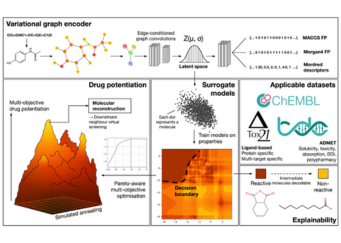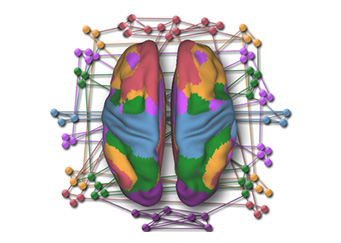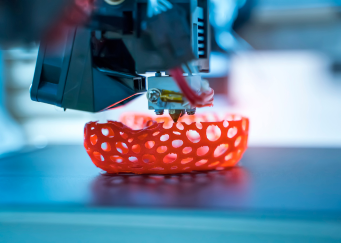Tackling antibiotic resistance with HPC
Antimicrobial resistance (AMR) is a global healthcare issue, which has resulted in 1.27 million deaths in 2019 and is expected to cause 10 million deaths by 2050. The excessive use of antibiotics is often cited as the major contributing factor for the evolution of bacterial resistance. Traditional antibiotics often fail in the treatment of multi-drug resistant (MDR) bacterial infections as they interfere with biosynthetic pathways that can easily be circumvented by the bacteria through mutation.
Membrane-active antimicrobials such as synthetic mimics of antimicrobial peptides (SMAMPs), is a potential solution to this problem as these molecules interfere with membrane function, an essential component of bacterial survival. However, the development of SMAMPs is largely by trial and error and little is known about how the membrane should be designed to target molecules due to the lack of molecular principles and poor understanding of the action mechanism.
A research team at A*STAR Bioinformatics Institute (BII) is tapping on NSCC’s supercomputing resources to employ a multi-disciplinary approach that involves in silico simulations and experimental validations to accelerate the development of membrane targeting antimicrobials. For example, based on the atomistic insights obtained from in silico simulations, the team has developed a pharmacophore model for the design of new antimicrobials targeting the bacterial membrane (Figure 1), which greatly accelerated the development of new antibiotics. One of the in silico designed compound displayed excellent antimicrobial activity and has been patented for further development.
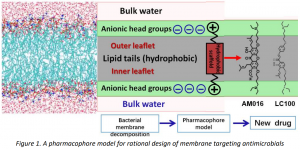
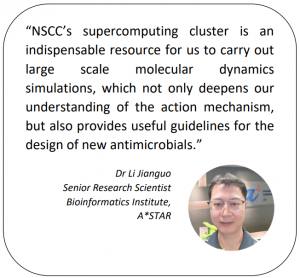
New analogues will be designed based on the atomistic insights from the simulations. The translation of in silico insights to practical antibiotic development will greatly accelerate the drug discovery process, providing cost saving measures, as well as the basis for a continued developmental process to meet new challenges presented by pathogens.
To find out more about the NSCC’s HPC resources and how you can tap on them, please contact [email protected].
NSCC NewsBytes July 2023
Other Case Studies
Advancing Drug Discovery Research using NSCC HPC resources
Researchers from Nanyang Technological University (NTU) are applying variational graph encoders as an effective generalist algorithm in computer-aided drug design (CADD)....
Gaining Deeper Insights into Mental Disorders through Brain Imaging and High-Performance Computing
Researchers from NUS are leveraging supercomputing to develop better strategies for prevention and treatment to mitigate the impact of mental illness. The human brain is a marvel...
Using Digital Twin Technology to Optimise the Industrial 3D Printing Process
Researchers from the Institute of High-Performance Computing (IHPC) are utilizing supercomputers to create a digital twin that furnishes users with comprehensive information...
